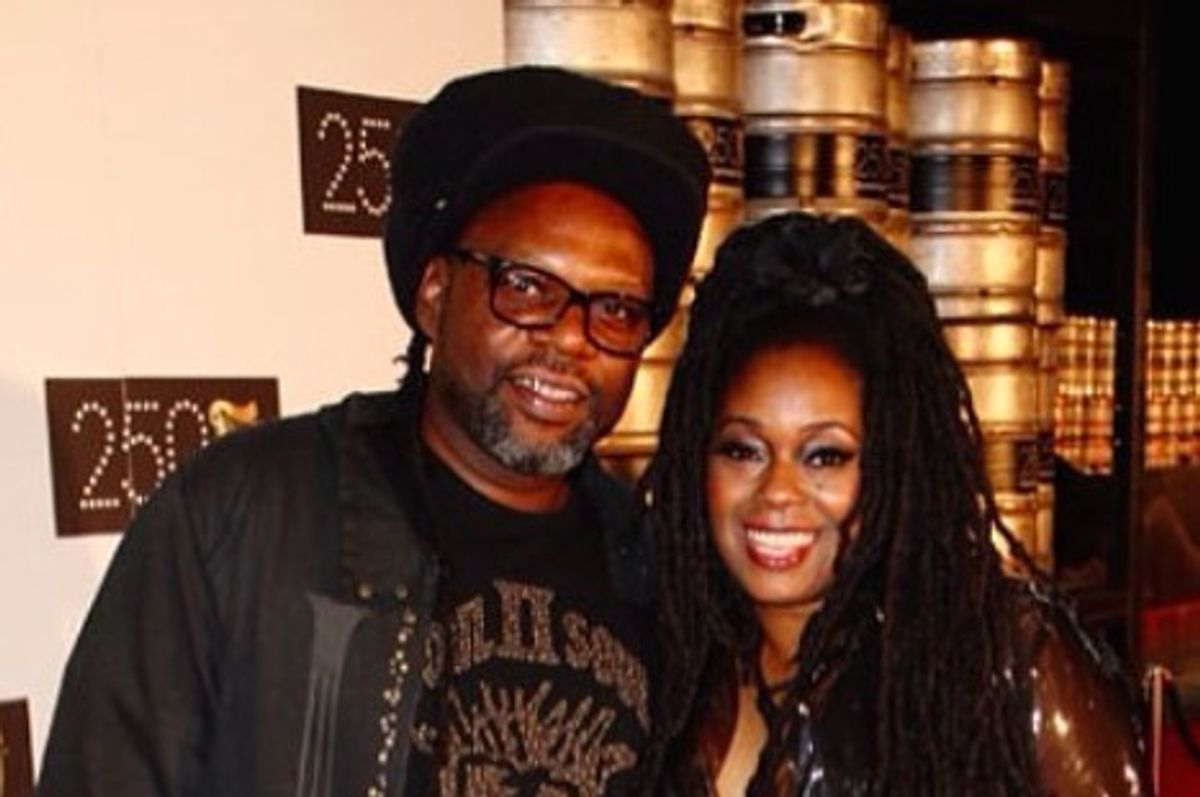
Jazzie B. And Caron Wheeler Speak On Soul II Soul's Debut 'Club Classics Vol. 1 (Keep On Movin')
To continue reading
Create a free account or sign in to unlock more free articles.
By continuing, you agree to the Terms of Service and acknowledge our Privacy Policy
Register
The content is free, but you must be subscribed to Okayplayer to continue reading.
THANK YOU FOR SUBSCRIBING
Join our newsletter family to stay tapped into the latest in Hip Hop culture!
Login
To continue reading login to your account.
Forgot your password?
Please enter the email address you use for your account so we can send you a link to reset your password:

Jazzie B and Caron Wheeler of the legendary dance outfit Soul II Soul sat down with Wax Poetics to discuss their smashing debut Club Classics Vol. 1 (Keep On Movin'.) The album -- which gave way to the bonafide new-jack smash "However Do You Want It" -- celebrated its 25th anniversary this year, and with a bit of help from the architect of the British soul group and their featured vocalist, we're getting a peek into the development of that monumental piece. Below you can catch a few compelling excerpts from the interview, but for the full script, go peep the track-by-track breakdown in its entirety over at WaxPo.
Jazzie B. on the origins of Soul II Soul:
"Technically, Soul II Soul is a sound system rather than a band per se, which is why we have a rotating lineup of different singers. This goes back to the origins of the old sound systems as well, because in a sound system, you would also have many different MCs or DJs. All of these things combined to form Soul II Soul."
Caron Wheeler on how she joined the group:
"A girlfriend of mine was working with Pink Floyd as a session singer. She called me and told me that she couldn’t make the session for that evening. She told me she was going to be gone for two months, and asked me if I could take her place. I was working on vocal arrangements and writing to songs. Jamie Morgan recorded me on a song, and I can’t even remember what I was arranging or what song I was working on, because we were working on a bunch of different songs. Jazzie heard some of the vocals I laid down, and he decided that he wanted to meet me. He really liked the way my voice sounded and the way I was arranging the songs for Jamie. So I met him. When I heard the first bits of the album he had, I wasn’t impressed, to be honest. But I thought his ideas were really good, and the whole sound system thing was something I grew up with. For me, it was a part of my culture as an English Black woman. It turned into a working relationship. He asked me, “Could you sing on this, and could you sing on that?” I told him, “I might be able to, but I need to get paid.”
Jazzie B. on the sonic direction he chose for the album:
"It had to be done in a way that the Americans could understand, which meant formulizing things in a way that they could digest. Whereas being from Europe, where creativity and innovation are paramount over record sales, this was the real difference. Making these songs were more about what was going on with us at that given time. In terms of the popularity of the record, it was more about the people embracing what they heard as opposed to us formulating a sound that was popular for radio."